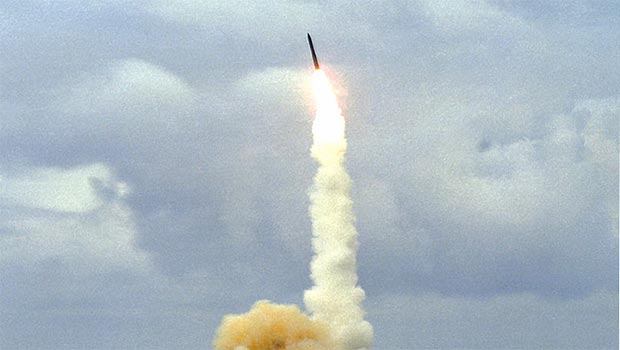For the first time in my memory, questions about nuclear weapons were raised in this U.S. election cycle. During the debates, the looming spectre of unfit fingers on buttons was projected – and former U.S. missileer Bruce Blair joined the election fray doing an ad for Hilary Clinton. No matter what the outcome though, these questions have missed the point best made by outgoing UN Secretary General Ban Ki Moon – there are no right hands for the wrong weapons.
Tensions between the U.S. and Russia are higher than they’ve been since the end of the Cold War- and these two countries possess more than 90% of the world’s nuclear weapons. Nuclear threats between the two have also become more overt. Not only the quieter, more subtle threat of trillion dollar investment programmes, but actual exercises with nuclear capable delivery systems. On both sides. The rhetoric is being matched with actual movements towards increasing the likelihood of use of nuclear weapons.
And no one in the election campaigns is talking about how this also increases the chance of accidents. Like the accidental collision between French and British submarines armed with nuclear weapons. Only more level-headed, non-nuclear armed countries, are talking about the fact that both the U.S. and Russia maintain the ability to launch nuclear weapons on a moment’s notice.
Let me say that again. Whoever wins on Tuesday, will have the ability to launch a nuclear missile, and will be given 5 minutes decision time to do so. Congress will not be consulted. A declaration of war will not happen. In all likelihood, if it comes down to using the ‘nuclear football’ it will be done quickly, without even a full consultation of the Joint Chiefs of Staff. A few minutes, to decide whether or not to end civilisation as we know it.
The Red Cross had made it clear that there is no help if a nuclear bomb is used in a populated area, no one can rescue the few who might survive. Blood transfusions and burn beds are some of the emergency response mechanisms, but there is not enough blood banked, and no one has even 1% of the beds that could be needed. No help to remedy a decision that could be taken in moments.
Partly because of these heightened tensions, because there is no help if the bombs start flying, the international community has taken its own vote. And it has voted to negotiate a new treaty to make nuclear weapons illegal.
Whoever takes those steps into the White House on 20 January will have to deal with a new reality in their first 100 days — a reality that includes a codification of the stigma against nuclear deterrence, against the possession and possible use of nuclear weapons. The new U.S. President will have the opportunity to cancel trillions of dollars of investment into weapons that should never be used and will soon be illegal to possess. No matter who wins, the majority of the worlds governments agree with Ban Ki Moon, there are no right hands for the wrong weapons.
For decades U.S. Presidents have managed to keep their grubby little hands off the nuclear button, and I can only hope that whoever wins will at the least keep up that tradition, and just maybe, go a little further.




